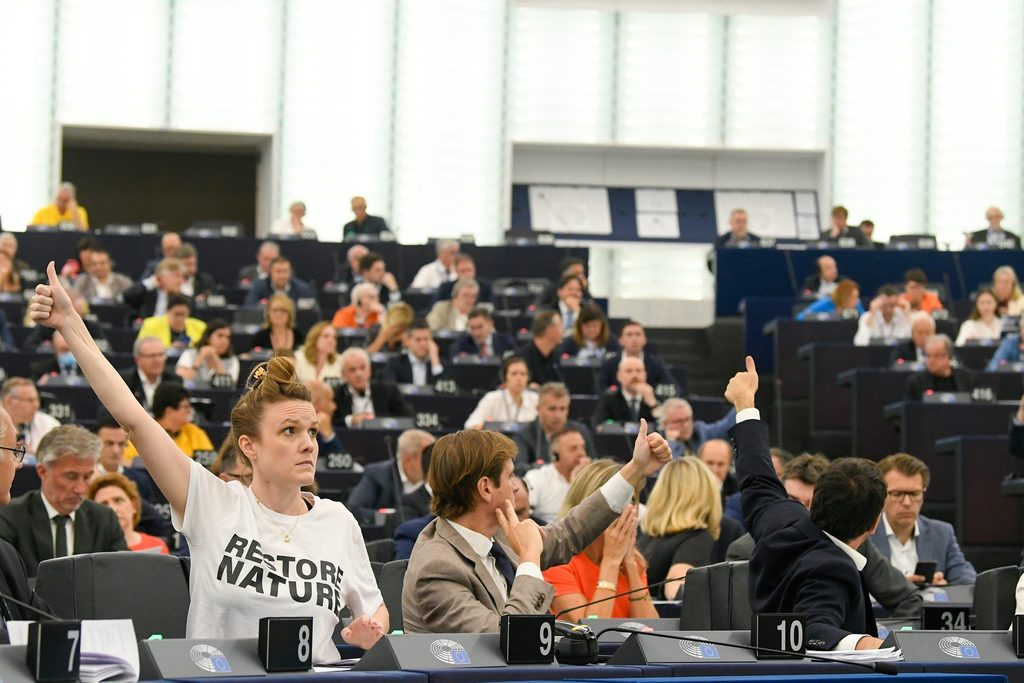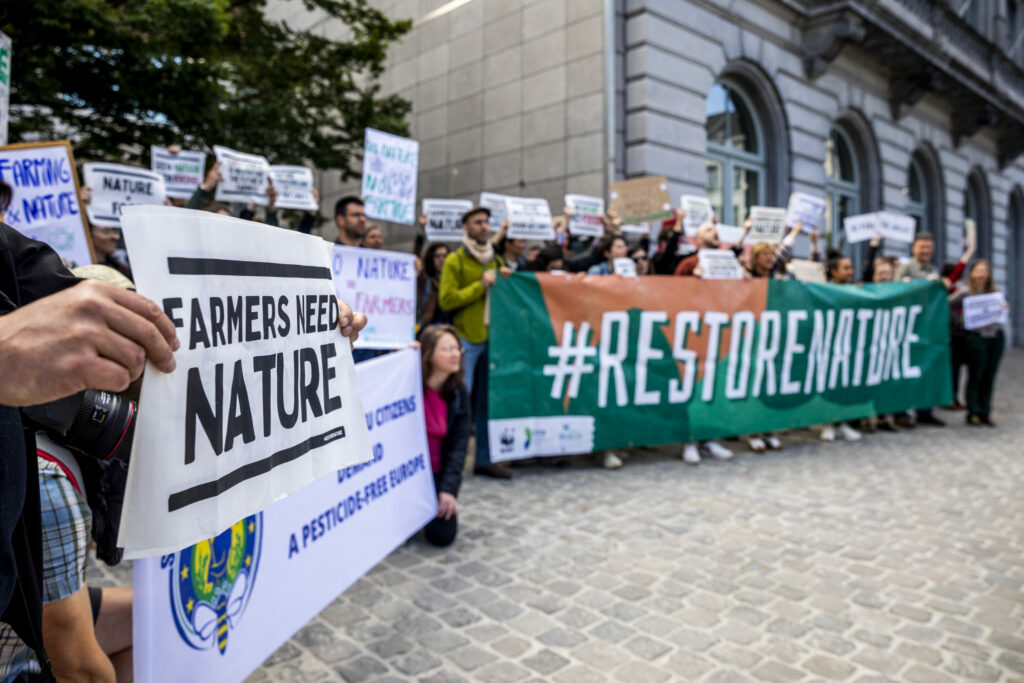The European Council failed to adopt the landmark Nature Restoration Law (NRL) this week, with the vote postponed "until a later date" after Member States "sabotaged" the deal by withdrawing support for the text at the last minute.
Approved by the European Parliament in February, the vote on the landmark NRL legislation of the European Green Deal – which was supposed to take place on Monday – is normally only a formality but did not take place when it became clear the legislation would not get the support after Hungary's sudden U-turn.
"It is very worrying that European Member States are no longer supporting the Nature Restoration Law, after negotiating a hard-fought compromise with the European Parliament," Adeline Rochet, programme leader at the Corporate Leader Group Europe within the Cambridge Institute for Sustainability Leadership, told The Brussels Times.
Strategic mistake
Going back on the agreement on the NRL (which had been two years in the making) now would be "a strategic mistake" that would not only increase the threats against the health of the environment but also have an impact on economic stability, Rochet said.
The NRL would oblige Member States to restore at least 20% of habitat areas in poor condition by 2030, 60% by 2040, and 90% by 2050 – making them the first legally binding targets to restore ecosystems in the EU.
"A well-designed, nature-positive policy would create new economic opportunities, cut emissions, enhance resilience towards climate disasters, and improve global health," Rochet said. "All this will be lost if the European Council does not seriously commit to restoring nature imminently."

European Parliament voting session, with German MEP Terry Reintke wearing a "Restore Nature" shirt in support of the legislation. Credit: European Union/Philippe Stirnweiss
While the vote on the NRL was quietly removed from the agenda on Monday, the meeting of EU Environment Ministers still took place and saw Ministers from multiple Member States taking the floor to argue in favour of the proposal – urging the Belgian Presidency of the EU Council to swiftly find a way to adopt the law.
Belgian Environment Minister Alain Maron, who chaired the meeting on Monday, said that there is "no time for a break or pause" at the Think2023 event by the Institute for European Environmental Policy on Wednesday, stressing the need for "urgent decisive action" to avoid climate catastrophe. At the same time, Belgium is among the Member States blocking progress on the NRL.
At last week's summit of EU leaders, hopes for the text already faded as Sweden, the Netherlands and Italy indicated they would oppose the bill. Still, it had a slim majority – even with Belgium, Austria, Finland and Poland abstaining – until Hungary unexpectedly tipped the balance by not supporting the text, even though Hungarian MEPs had previously voted to approve it in the European Parliament.
Hungarian sabotage
The last-minute pushback against the proposal and Hungary's change of heart came as a shock to many other Member States, as well as environmental organisations.
"We condemn all Member States who are not supporting the law – at best, it suggests a deep failure to understand the situation we are in and what it means for the rights of citizens," the #RestoreNature coalition said in a press release, adding that allowing Viktor Orbán to sabotage the legislation "flies in the face of science, citizens’ concerns, the European Parliament’s support, and corporate backing for the law."
The coalition added that it is "completely incomprehensible and appalling" to see the NRL being "sacrificed on the altar of populist anti-green sentiment, devoid of any rational explanation, and undermining the democratic decision-making process."
Related News
- Belgian Presidency postpones Nature Restoration Law indefinitely
- Coca-Cola, Unilever: Big businesses call for EU emission reduction target of 'at least' 90% by 2040
- EU nature law passes to restore 20% of Europe's degraded land and sea
Even though the agreement on the legislation reached in February was a heavily reduced version of the initially proposed measures to protect the environment, its defendants still welcomed the deal – after the draft law caused considerable controversy.
The various stumbling blocks included the European People's Party (EPP) being accused of leading a disinformation campaign to torpedo the legislation, farmers' protests, and suspicions that Belgian Prime Minister Alexander De Croo (Open VLD) has been "actively lobbying" other Member States to vote down the bill.

